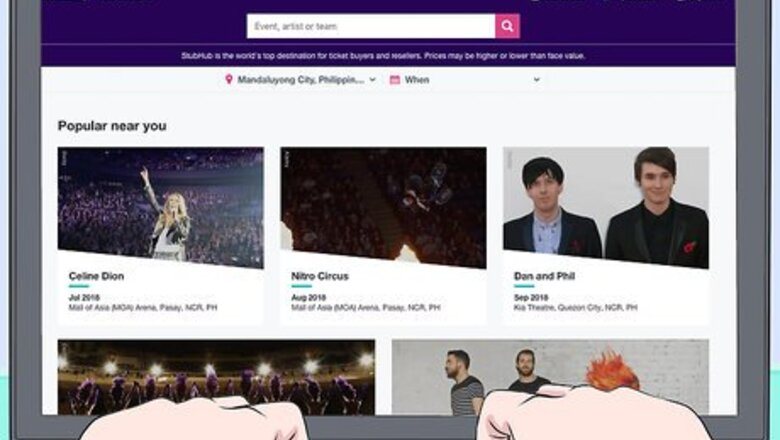
views
Selling Your Tickets Online
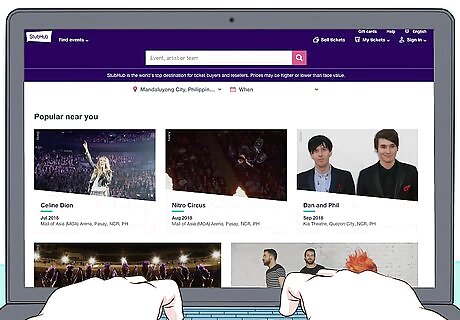
Choose which resale websites to post your tickets to. How quickly your tickets sell and how much you or your buyer have to pay in fees will vary from site to site. Choose a website or websites that best fit the circumstances of your sale. For example, if selling the tickets quickly is your top priority, you may want to use StubHub or TicketMaster, which have relatively high volumes of traffic. However, if you'd rather prioritize the amount of money you'll make, consider a site like TickPick, which charges smaller fees. If your tickets are for a jam band concert or music festival, you might want to try selling them on Cash or Trade, a site that specializes in buying and selling concert tickets for that genre of music.
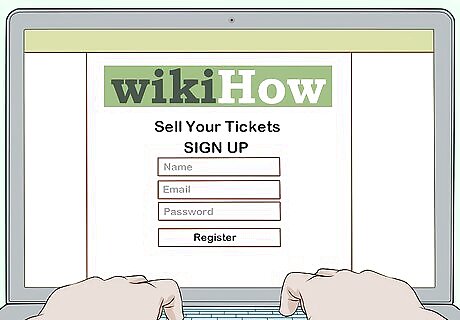
Register for the sites you chose and post your listing. You'll need to register an account for most resale websites before you can post a listing on them. Registration for most sites is a simple and straightforward process. Never pay to register for a resale site account; plenty of the best sites, like StubHub and TicketMaster, are free. Registration will generally require you to input some personal information, and some sites will require you to provide valid credit card information. For these sites, your card information will only be used for identification purposes. Be as detailed and accurate as possible when creating your listing. If you make a mistake in the seating information for your tickets, your sale can be reversed and you may even be charged a penalty.
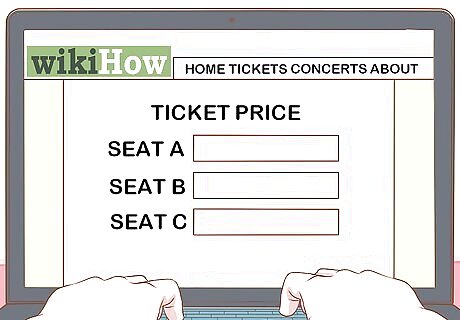
Check comparable listings to set a good price for your tickets. Set a price for your tickets that is reflective of their value (e.g., a higher price for closer seats), but which will also encourage buyers to buy your tickets over others. Look for other tickets to your concert on resale websites to gauge how other sellers are pricing their tickets. These are the offers you will be competing with. For example, if your tickets originally cost $300 and other resellers are offering similar seats for $200, you should also set your price at around $200 to stay competitive. If you'd rather not deal with pricing yourself, many resale websites will offer to set the price for you or to automatically lower the price of your tickets as the concert date approaches to keep them competitive.
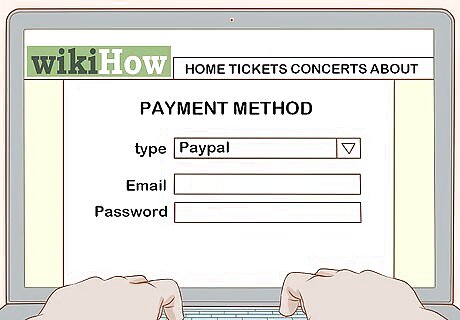
Choose how you'd like to be paid. Online payment methods, such as PayPal, are convenient and available for most ticket resale websites. However, you can usually also choose to be paid with a physical check if you prefer. StubHub will also give you the option of donating the proceeds of your sale to charity. PayPal is a very popular online payment method, and setting up an account is free. Consider using this site for your payment method whenever possible.
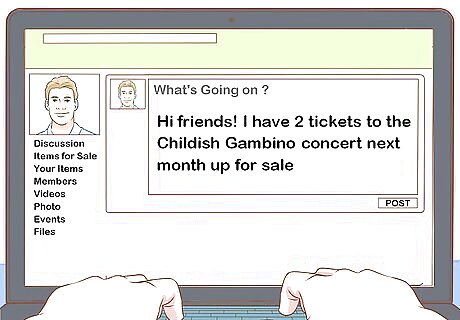
Promote your listing on social media. This is a great way of expanding the number of people who might consider buying your tickets to friends, family, and acquaintances. For instance, post a status on Facebook that directs people to your listing: “Hi friends! I have 2 tickets to the Childish Gambino concert next month up for sale on StubHub if anyone wants to take them off my hands!” Be sure to include a link in your post to the site where people can purchase your tickets. If family members or local friends decide to buy your tickets, you will also be able to sell them in person instead of online, thereby avoiding having to pay any fees.
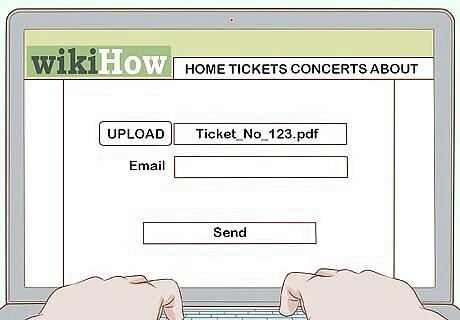
Transfer ownership of the tickets once they have been purchased. After your resale website has notified you that your tickets have been bought, upload your original pdf tickets or enter the barcode if you haven't already. This will allow the buyer to instantly take possession of the concert tickets. If you uploaded your pdf or the barcode to the site when you first listed the tickets for sale, you probably won't have to do anything once a buyer has bought them. E-tickets are generally bought and sold instantly. If you have paper tickets, the resale website will provide you with a prepaid shipping label to use to mail your tickets to the buyer. Once the buyer has received the tickets, the site will begin processing your payment.
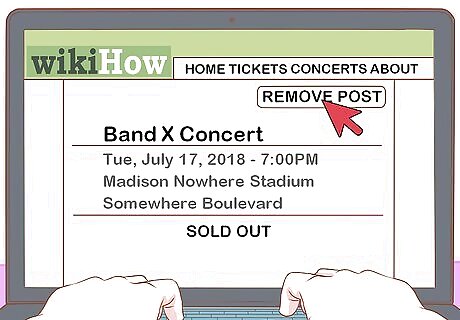
Remove your posting as soon as the sale is finalized. This will prevent you from inadvertently selling the same tickets twice and having to cancel the deal through the resale site. Be sure you remove the listing from all resale websites you posted the tickets to. Make sure to wait until you have definitely received all the money from the sale before removing your listings.
Selling Your Tickets Outside the Venue
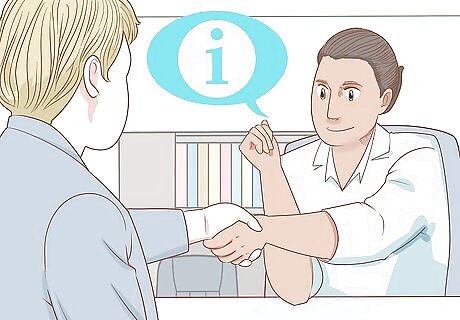
Consult local laws to ensure you can legally sell tickets at the venue. There is no national law prohibiting ticket resale in the United States, and each state has its own laws pertaining to reselling tickets at a venue. For example, it is illegal to resell tickets in Michigan without the written consent of the venue operator, while all ticket resale is legal in Minnesota.
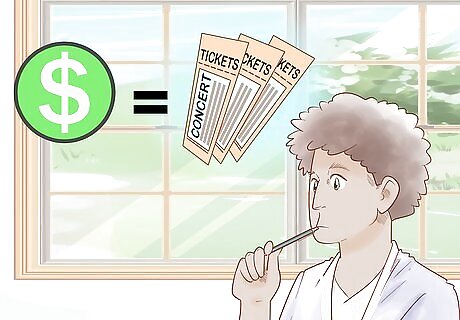
Set a flexible price for your tickets. Because you're selling your tickets person-to-person, you may encounter buyers who will try to haggle with you to lower the price of the tickets. Pick a price range within which you're comfortable selling the tickets and stick to it. For example, perhaps set your starting price at $50 per ticket, but be willing to negotiate down to as low as $40. If the potential buyer still refuses to pay this much for your tickets, move on to a different buyer. Many states prohibit reselling tickets at higher than face value. Make sure to consult your state's ticket resale laws before setting your price.
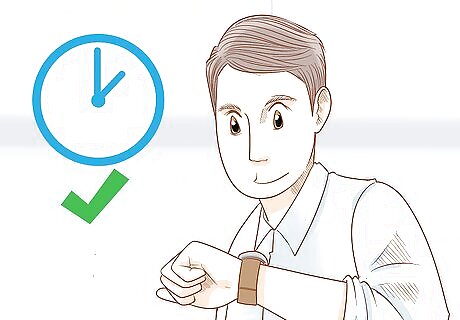
Arrive at the venue several hours in advance. The best way to ensure there will be a buyer for your tickets is to offer them for as much time as possible before the concert begins. Moreover, for high-demand concerts, people will likely be at the venue hours ahead of time to buy tickets. Even if you've arrived early, stay for as long as possible to sell your tickets; people who buy resale tickets at the venue often arrive to do so at the last minute.
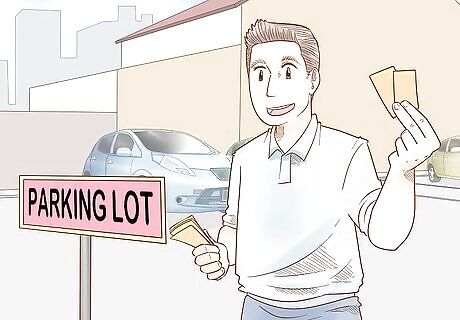
Position yourself where would-be buyers can see you. You won't be able to sell your tickets if no one knows you're there to sell them. If possible, post yourself up near the parking lot or along a route many people take to get to the venue. Some venues have “no scalp zones” located nearby, where fans can sell extra tickets they have at face value. Check to see if the concert venue has designated such a zone nearby, and sell your tickets there for the best odds of success. Some state laws prohibit reselling tickets within a certain distance from a venue. Be sure to adhere to local laws in where you position yourself.
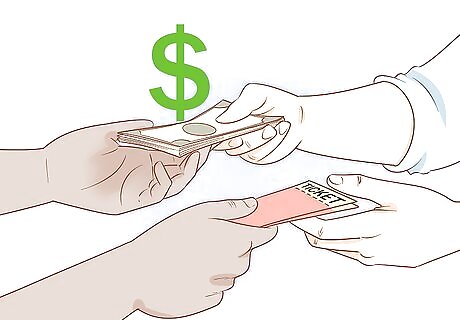
Make the exchange. Once a person has agreed to buy your concert tickets at the price you've set, exchange your tickets for the cash. The exchange shouldn't take long, and feel free to leave the venue as soon as the sale is completed. Make sure the cash is real before handing over your tickets. Don't accept money that looks suspicious or like a forgery. Don't accept a check as payment for your tickets. The check may bounce when you go to cash it, and you will have given away your tickets for nothing. Insist on only accepting cash.












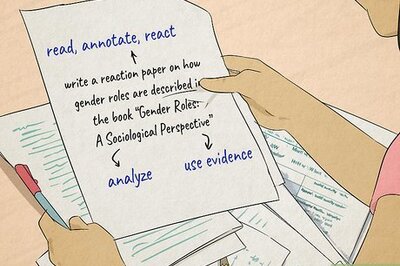






Comments
0 comment